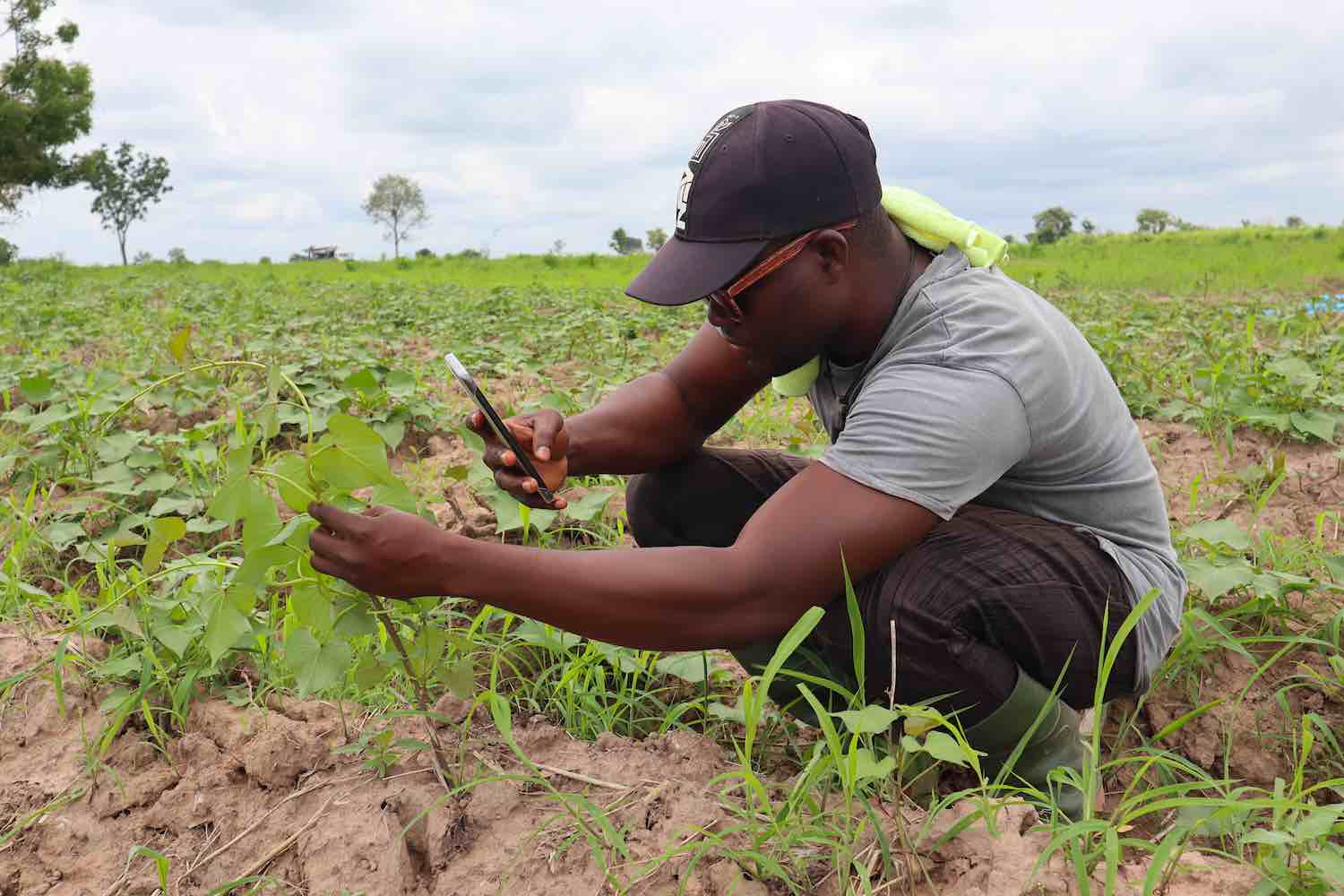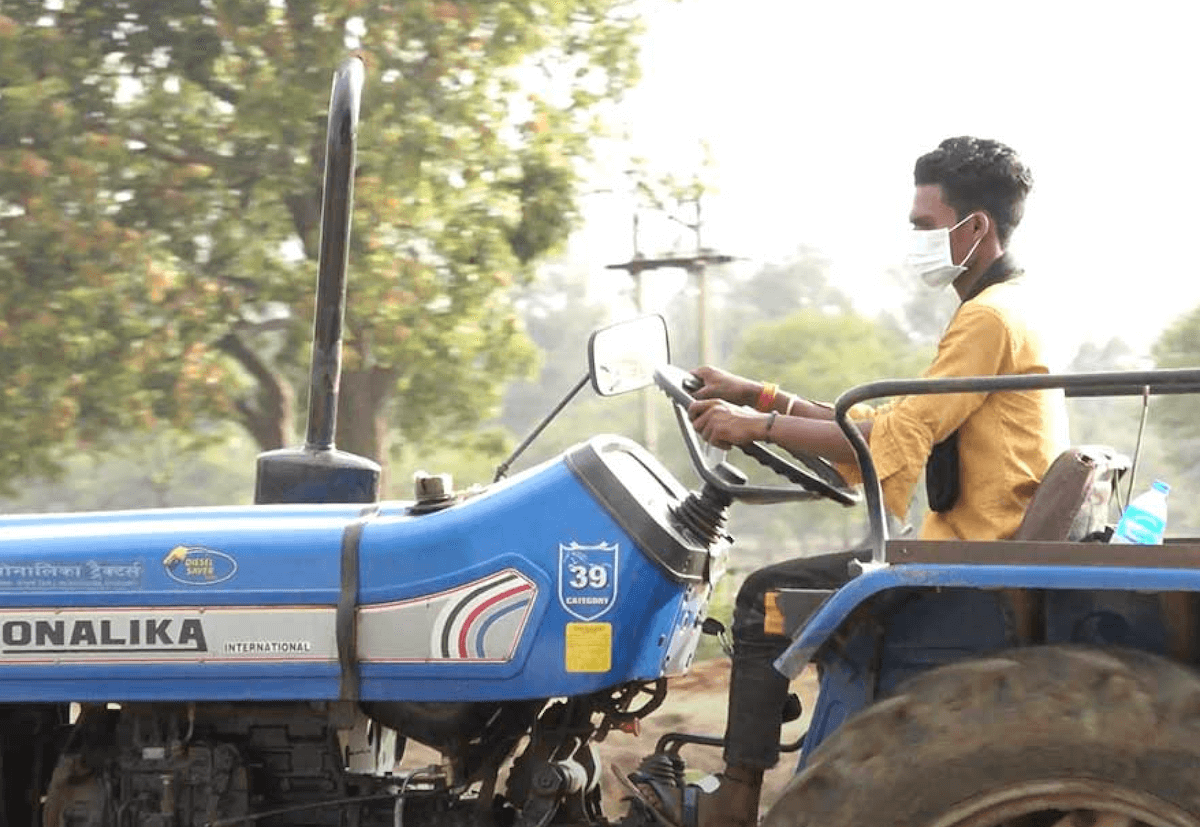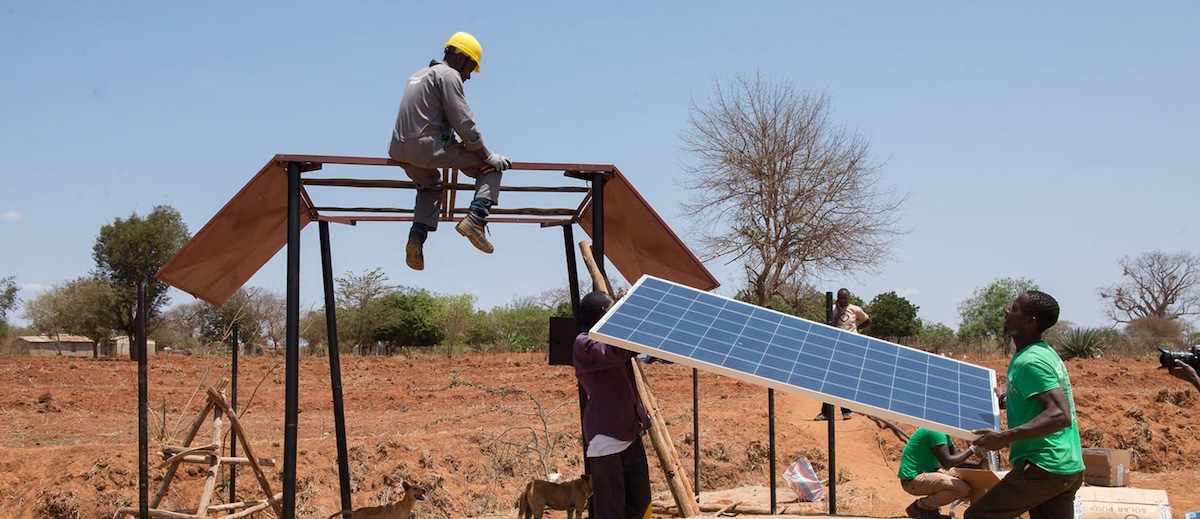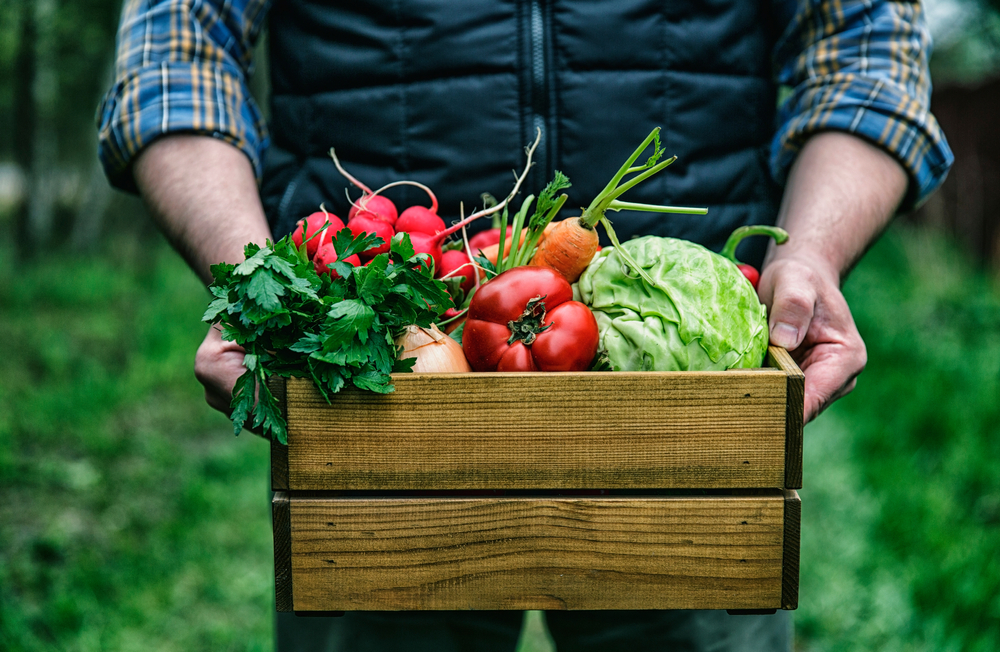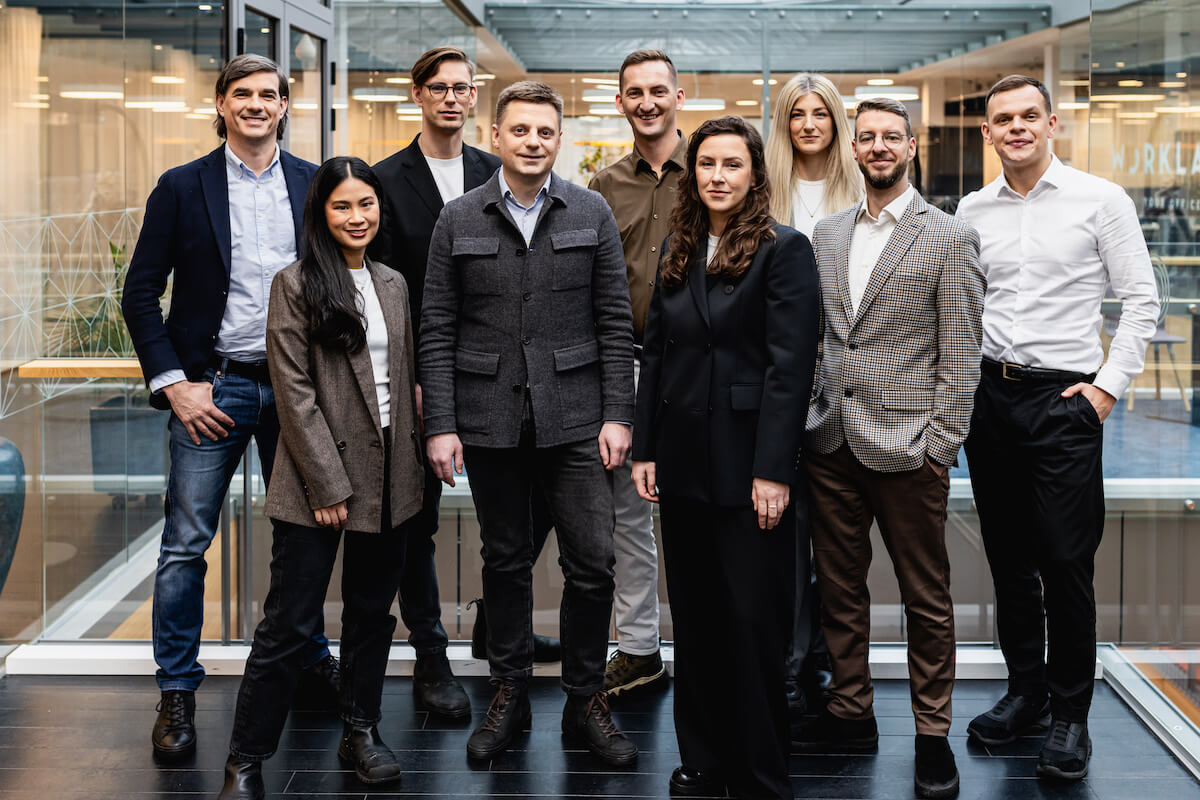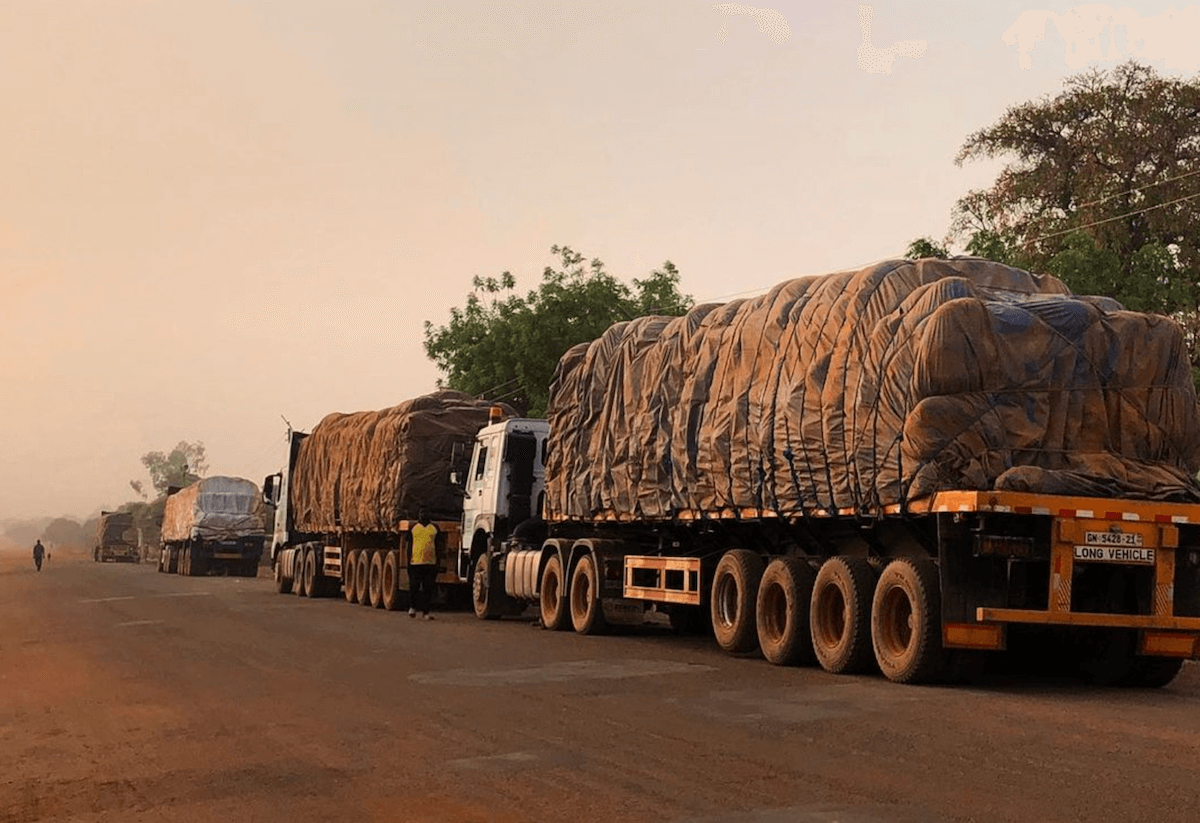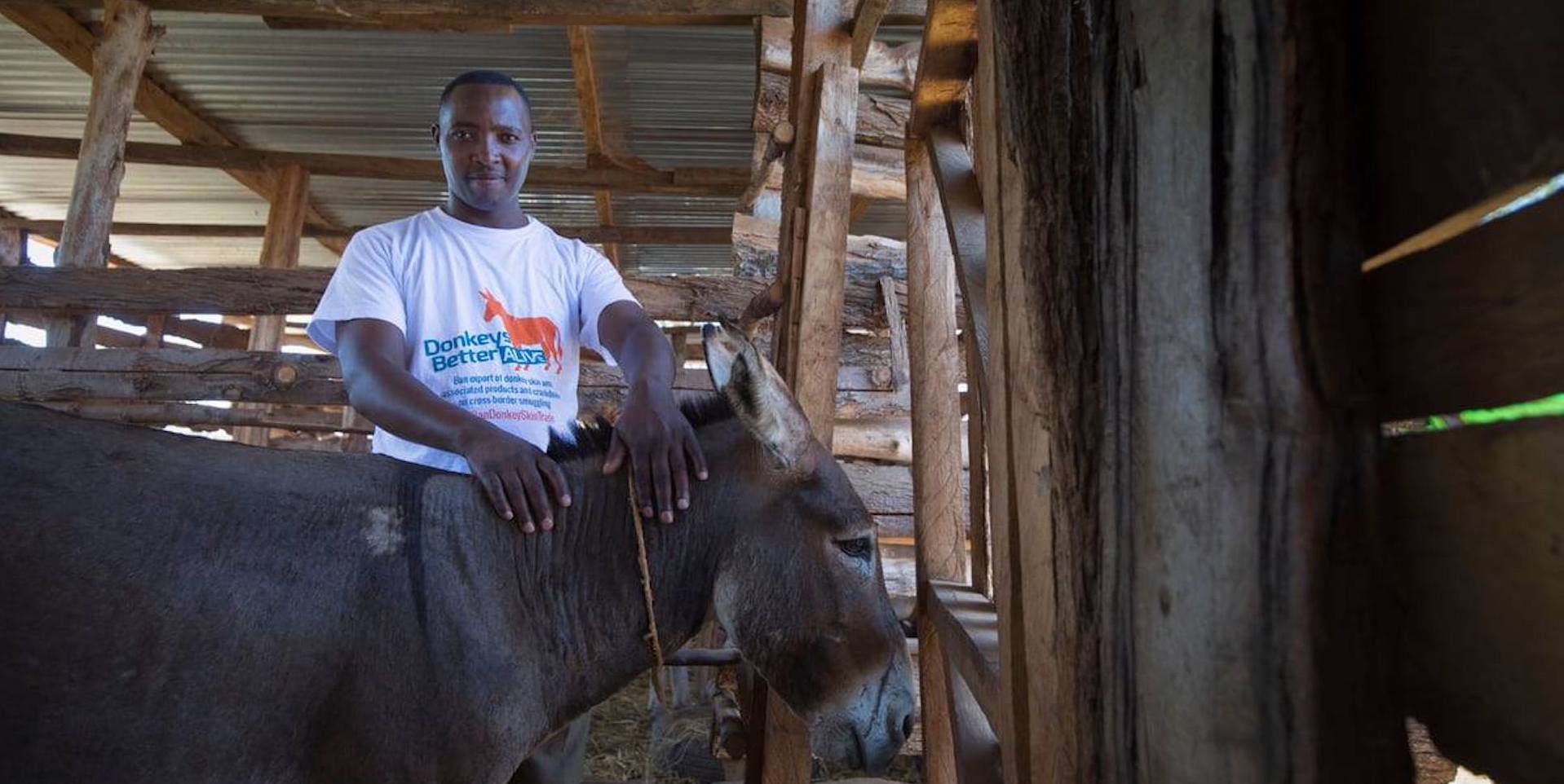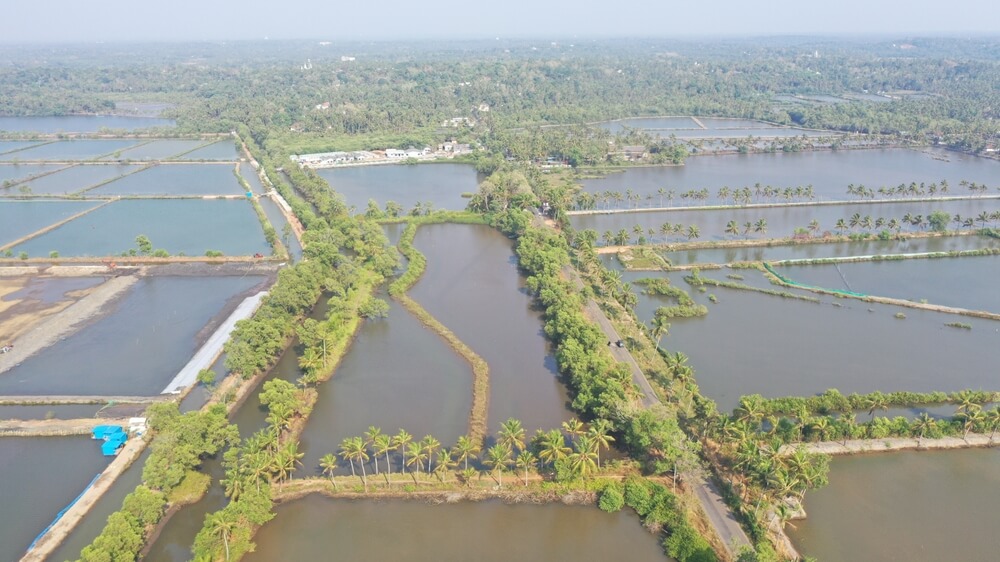ImpactAlpha, Oct. 5 – When Desmond Koney inherited his father’s farm, he discovered firsthand the challenges of smallholder farmers in Ghana and much of Africa, including getting access to agricultural inputs, technical assistance and getting fair prices in a global market. After digitizing his farm operations, he’s helping others do the same with Complete Farmer, which last week raised $10.4 million in equity and debt.
Complete Farmer’s financing is an exception to the downturn in agtech funding in Africa, which fell 77% in the first half of 2023 compared to the same period a year ago. Digitization of agricultural supply chains – connecting farmers to customers, input suppliers and advice – is a bright spot.
The trend is towards layering many of those services into one-stop-shops for farmers, which investors like British International Investment increasingly want to back. Ventures providing online financing, marketplaces, logistics and food processing support attracted more than half of all funding to agri-foodtech startups according to Agfunder’s latest tally.
Complete Farmer’s $10.4 million equity and debt raise supported its pivot from a funding platform for farmers to a broader marketplace. “The crowd farming model was only solving one part of the problem,” Koney told ImpactAlpha. “It wasn’t really wasn’t digitizing agriculture.”
Investor outlook
More financing is needed to make agriculture compete with other industries, says Complete Farmer’s Koney. From the company’s perch as an end-to-end platform, he sees funding gaps for key players across the ag value chain, such as companies providing farmer extension services, mechanization and irrigation, post-harvest solutions and even research.
“For the whole value chain to be effective, certain parties also need investments, including the third party logistics providers we work with,” said Koney.
This year’s African agtech funding downturn follows a record $636 million invested in the market in 2022. Core investors continue to see opportunity. High inflation and weakening economies has made it more expensive for African nations to import food, which is increasing demand for locally sourced produce, Tekedia Capital’s Ndubuisi Ekekwe told Agfunder.
And long term trends bode well. “Long term fundamentals of technology uptake, population growth and the immediacy of risks and opportunities posed by climate change position agri-foodtech strongly,” added Katapult Africa’s Danny Smith.
Agritech startups are acutely impacted by climate change-driven weather extremes, which adds another layer of risk for investors.
Climate resilience
As climate change ravages agricultural patterns and productivity, Afriacn agritech startups are helping farmers boost productivity by providing them with information to help navigate increasingly frequent weather extremes and rebuild soil health.
Complete Farmer, for example, issues guidelines founded on farm data, crop type and weather patterns to help farmers meet market specifications and adopt more climate-resilient practices. It embeds climate-smart advice in those guidelines, such as new farming methods and use of organic fertilizers.
Farmerline, another Ghanaian marketplace, helps smallholder farmers build climate resilience with digital tools, logistics, field agents, farm resources and agribusiness partnerships. It raised $6.4 million in equity last year.

